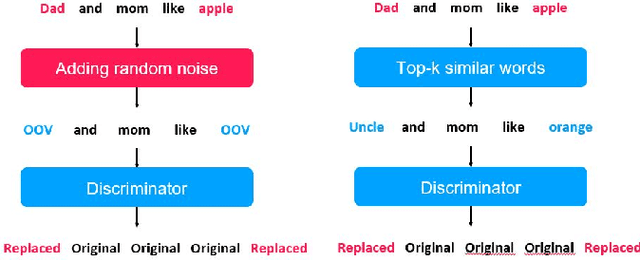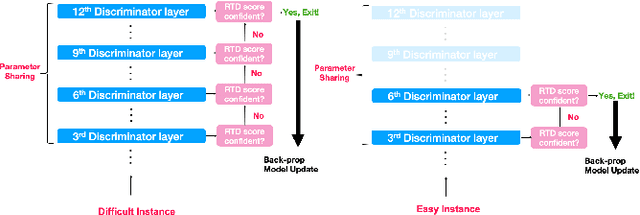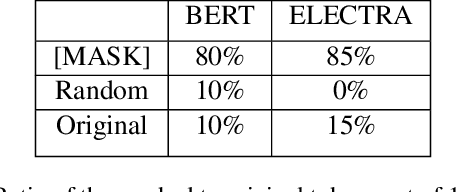Maximizing Efficiency of Language Model Pre-training for Learning Representation
Paper and Code
Oct 13, 2021



Pre-trained language models in the past years have shown exponential growth in model parameters and compute time. ELECTRA is a novel approach for improving the compute efficiency of pre-trained language models (e.g. BERT) based on masked language modeling (MLM) by addressing the sample inefficiency problem with the replaced token detection (RTD) task. Our work proposes adaptive early exit strategy to maximize the efficiency of the pre-training process by relieving the model's subsequent layers of the need to process latent features by leveraging earlier layer representations. Moreover, we evaluate an initial approach to the problem that has not succeeded in maintaining the accuracy of the model while showing a promising compute efficiency by thoroughly investigating the necessity of the generator module of ELECTRA.
 Add to Chrome
Add to Chrome Add to Firefox
Add to Firefox Add to Edge
Add to Edge